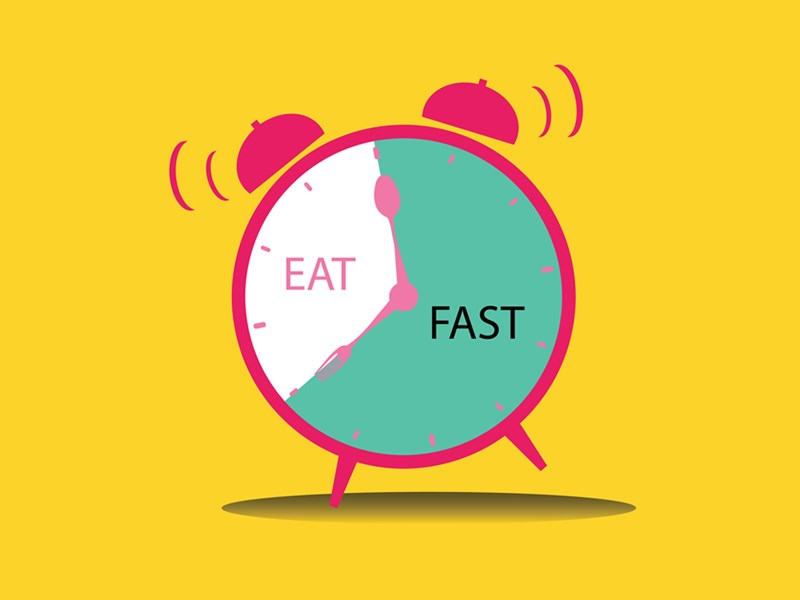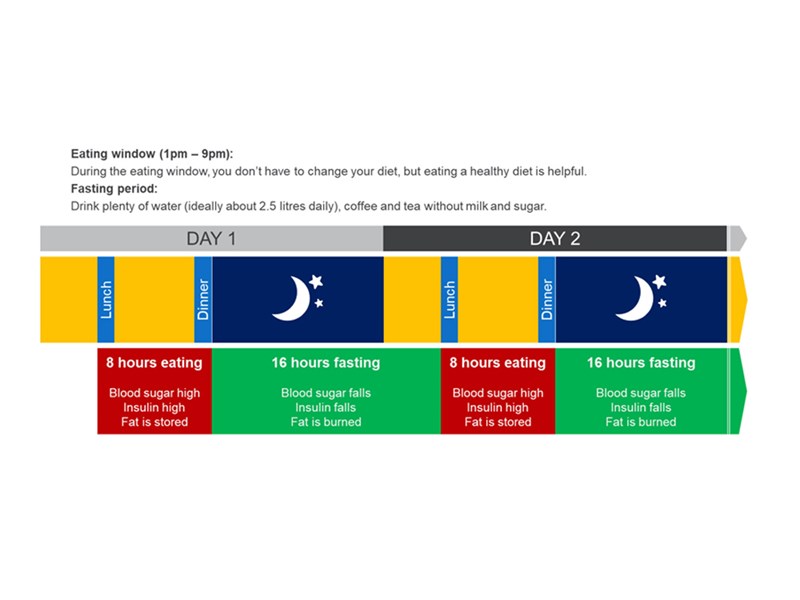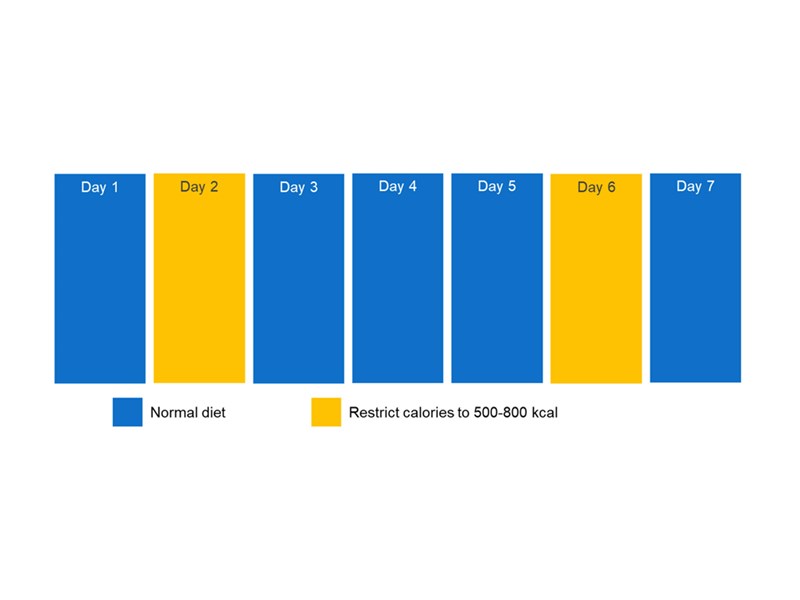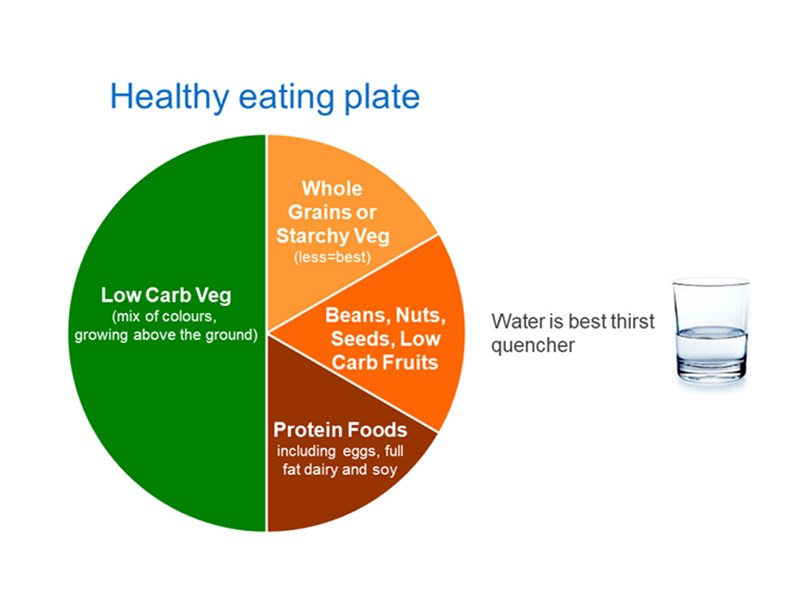Fasting Effects on the Body
Fasting can lead to changes in your body and may cause the body to make several adjustments.
- Low blood glucose. If you have type 1 diabetes or type 2 and are on insulin or sulphonylureas, these medications will tend to make your blood glucose go low (hypoglycaemia).
- High blood glucose levels. High blood glucose levels (hyperglycaemia) are associated with large portions at mealtimes, particularly increased carbohydrate.
- Sleep. As well as altering the times that you eat meals, fasting may also disturb the quality of your sleep. Losing sleep can affect the levels of your stress hormones, which can cause your blood glucose levels to rise. If you want to improve your sleep patterns, read our sleep section.
Risks of Fasting
There are some key risks associated with fasting. If you are on medication such as insulin or sulphonylureas (e.g. gliclazide), or elderly or have had complications from your diabetes such as a heart attack or stroke, it’s essential that you speak to your health team before starting fasting.
- Low blood glucose (glucose below 4mmol/l), especially towards the end of the fast.
- High blood glucose levels (blood glucose consistently in double figures or higher than your blood glucose targets).
- Dehydration (your body getting dry). This is more of an issue where Ramadan fasting hours are long or where the climate is hot.
- Serious kidney problems. Dehydration (being very dry) can cause serious problems with your kidneys, particularly if you are:
- elderly
- have poor kidney function
- are on medications such as ACEs (medications ending in “-pril”), ARBs (medications ending in “-sartan”), diuretics (water tablets such as furosemide), SGLT-2s (medications ending in “-flozin”).
- Significant weight gain. Feasting (particularly lots of sweet or starchy foods) following fasting and moving less will both tend to cause weight gain and higher blood sugars despite fasting.
Staying Safe while Fasting
- If you are on medication which can cause low blood glucose levels (e.g. insulin or sulphonylureas such as gliclazide), always carry glucose treatment with you. Common options include a packet of Jelly Babies (check for gelatin) or dextrose tablets. Visit our hypoglycaemia page for more information.
- Consider wearing diabetes identification, such as a Medicalert.
- Test your blood glucose regularly to monitor your glucose levels, particularly if they ranging high or low. This will not break your fast.
- Test your blood glucose level if you feel unwell during the fast.
- If your blood glucose is low (less than 4mmol/l), end the fast immediately and treat the low blood sugar level.
- If your blood glucose level is below 5mmol/l at the start of the fast and you are on insulin or a sulphonylurea such as gliclazide, do not fast.
- If your blood glucose is in double figures, you are at risk of becoming dehydrated. It is recommended to end the fast and drink sugar-free fluids and contact your health team if your blood glucose remains consistently high.
- If you become dehydrated (common symptoms include thirst, feeling lightheaded when you stand, headache or passing less, darker urine), end the fast immediately and drink plenty of water.
- If you start to feel unwell stop fasting. Check your blood glucose if you can drink plenty of fluids.
- You should never stop your insulin, but you must speak to your doctor/nurse before you fast because you may need to change the dose and times of your insulin injections.
Foods to eat:
- Eat balanced meals using the healthy eating plate above. Ideal proportions are half a plate of vegetables growing above the ground, quarter a plate of protein (e.g. meat, fish, nuts, seeds, full-fat dairy), and less than a quarter plate of whole-grain carbohydrate.
- Eat more vegetables that grow above the ground (such as green beans, spinach, broccoli, aubergine, mushrooms), as well as protein and healthy fats (such as olive oil, nuts, seeds and oily fish). This will help keep you feeling full and avoid big spikes and dips in your blood glucose levels.
- Increase quantities of lentils, pulses and beans in your meals. Start meals with salads, soups, fruits, and lentils.
- Eat plenty of full-fat yoghurt or milk-based foods. This will help you feel full for longer as well as ensuring adequate calcium intake. Try plain or Greek yoghurts with vegetables or low sugar fruits (e.g. berries, apples), seeds and nuts.
- Drink plenty of water before starting the fast and during the day if the fast allows. It is advisable to consume at least 8 cups of water per day (at least 2.5 litres) so that your body may adjust fluid levels in time for the next day.
Foods to avoid:
- Limit amounts of high sugar fruits, particularly dates, grapes and tropical fruit (e.g. mangoes and pineapples) and avoid drinking fruit juice. Fruit juice contains very high levels of sugar.
- Limit starchy processed foods such as white bread, rice, couscous, noodles, chips and pizza. These will cause your blood sugar to rise and will tend to cause increased hunger and weight gain.
- Avoid sugary foods such as chocolate, cakes, biscuits and pastries. A much healthier option (which will keep you feeling fuller for longer) is plain yoghurt with some low sugar fruit (e.g. berries).
- Avoid deep-fried foods such as samosas and chips. Measure oil you use in cooking and ideally use plenty of unprocessed oils including butter or olive oil.
- Avoid caffeinated drinks such as tea and coffee as these can act as diuretics.
- Avoid sugary drinks such as orange, apple and tropical fruit juices, and fizzy drinks as well as diet cola.









